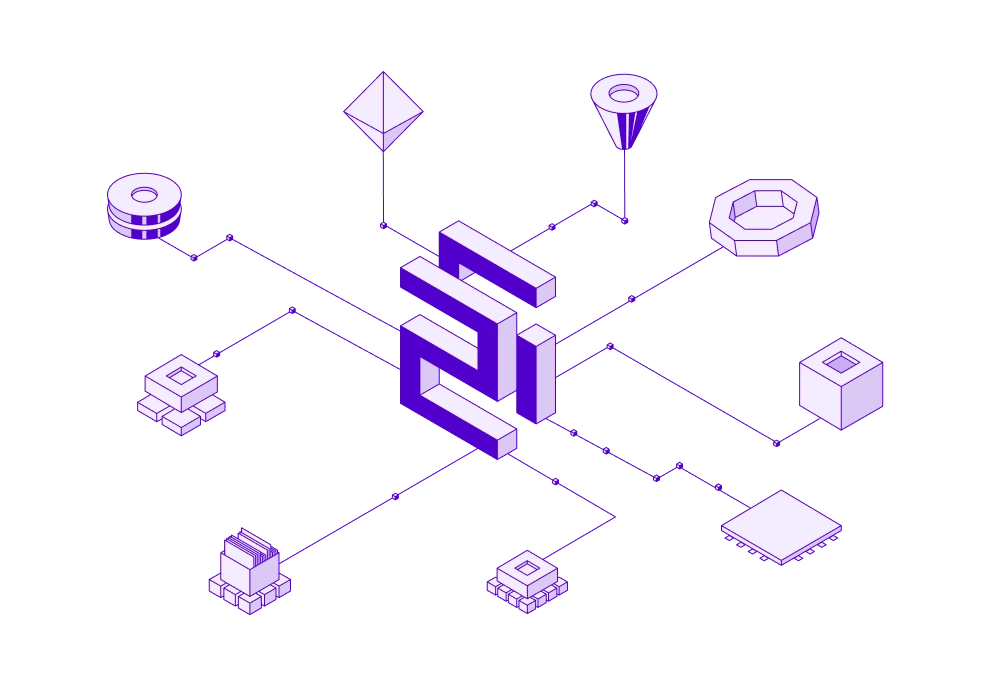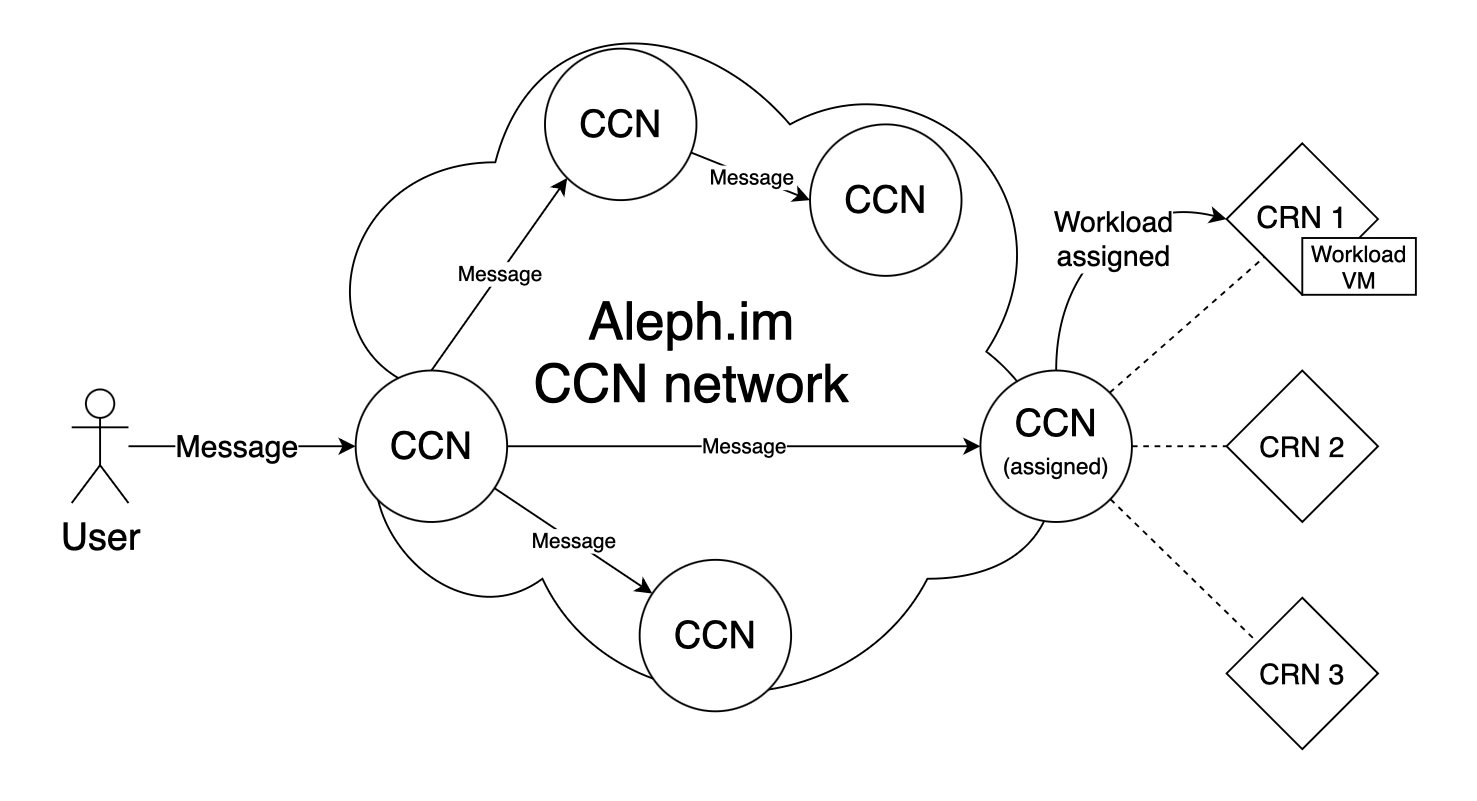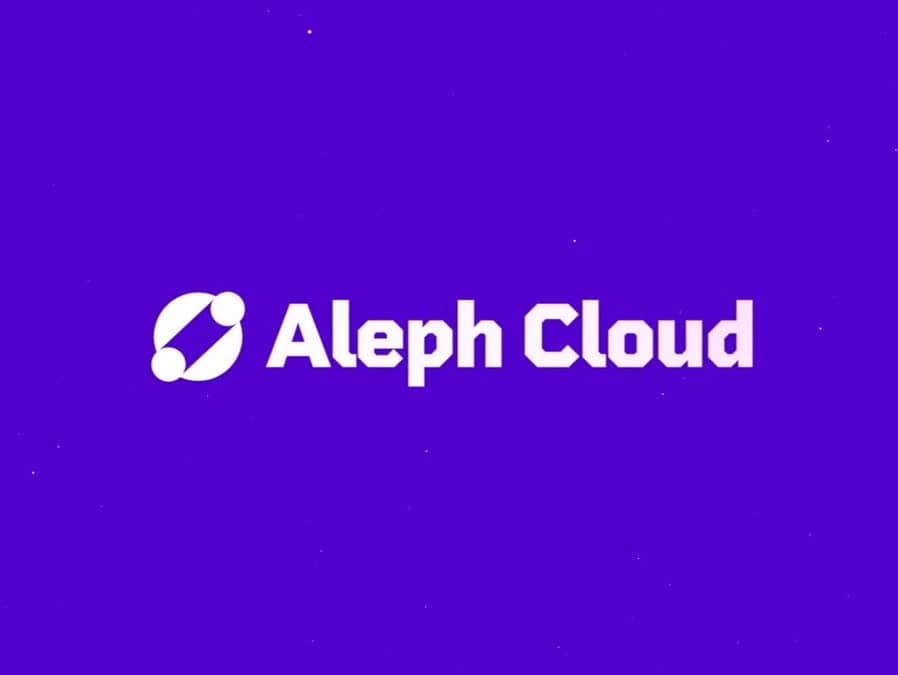위키 구독하기
Share wiki
Bookmark
Aleph Cloud
0%
Aleph Cloud
Aleph Cloud(이전 Aleph.im)는 다양한 블록체인에서 애플리케이션을 위한 분산형 스토리지, 컴퓨팅 및 보안 인프라를 제공하는 것을 목표로 하는 오픈 소스, 오프체인 P2P(Peer-to-Peer) 네트워크입니다.[1][2]
개요
Jonathan Schemoul과 Claudio Pascariello가 2018년에 설립한 Aleph Cloud는 분산형 스토리지, 컴퓨팅 및 가상 머신 프로비저닝을 제공하는 것을 목표로 하는 오픈 소스, 오프체인 P2P 네트워크입니다. Ethereum, Tezos 및 Solana를 포함한 주요 블록체인과의 상호 운용성을 지원합니다.
이 네트워크는 작업 관리 및 블록체인 인덱싱을 위한 Core Channel Nodes(CCN)와 Compute Resource Nodes(CRN)로 구성됩니다. ALEPH 토큰은 서비스 액세스를 위한 스테이킹 메커니즘을 통합하여 노드 운영자에게 지불 및 인센티브를 제공하는 매개체 역할을 합니다. 2024년에는 TwentySix Cloud 플랫폼과 함께 스트림 기반 지불 모델이 도입되었습니다.[1][2][3]
제품
Twentysix Cloud
Aleph Cloud는 DePIN(Decentralized Physical Infrastructure Network)으로 구동되는 분산형 클라우드 마켓플레이스인 Twentysix Cloud를 도입했습니다. 이 플랫폼은 블록체인 기반 스토리지, 컴퓨팅 엔진, 인덱싱 및 AI 솔루션을 제공하는 것을 목표로 합니다.
Twentysix Cloud는 효율적인 애플리케이션 호스팅 및 배포를 용이하게 하기 위해 에지 최적화에 중점을 둡니다. PAYG(Pay-As-You-Go) 모델로 운영되어 사용자가 사용한 리소스에 대해 비용을 지불할 수 있으며, ALEPH 토큰 또는 스테이블코인으로 지불이 허용됩니다. 또한 이 플랫폼은 GDPR 규정을 준수하여 사용자가 분산형 노드에 저장된 데이터의 소유권을 유지하도록 보장합니다.[4]

아키텍처
Compute Resource Nodes 또는 CRN
Aleph Cloud의 아키텍처는 오프체인 스마트 계약 실행 및 dApp 호스팅과 같은 작업을 위한 분산형 컴퓨팅 성능, 스토리지 및 리소스를 제공하는 것을 목표로 하는 Compute Resource Nodes(CRN)를 기반으로 구축되었습니다. P2P 설계는 단일 실패 지점에 대한 복원력을 향상시킵니다.
노드 운영자는 ALEPH 토큰으로 보상을 받아 생태계 안정성에 기여합니다. CRN은 베어 메탈 서버, 최소 8개의 코어가 있는 프로세서, 64GB RAM, 1TB 스토리지, IPv4 및 IPv6가 모두 구성된 최소 500Mbit/s의 연결 속도를 포함한 특정 하드웨어 요구 사항을 충족해야 합니다.[5]
Core Channel Nodes 또는 CCN
Core Channel Nodes는 트랜잭션 처리 및 크로스체인 통신을 통해 네트워크 무결성을 보장하면서 안전한 데이터 스토리지 및 메시징 서비스를 제공하는 것을 목표로 합니다.
노드를 운영하려면 참가자는 ALEPH 토큰을 스테이킹해야 하며, 이는 안정성을 촉진하고 기여에 대한 보상으로 ALEPH 토큰을 받습니다. 하드웨어 요구 사항에는 최소 4개의 코어가 있는 CPU, 32GB RAM(64GB 권장), 4TB 이상의 스토리지 및 최소 100MB의 업로드 대역폭이 포함됩니다.[6]
Aleph Cloud Python SDK
Aleph Cloud Python SDK는 사용자가 서명된 메시지를 보내고 읽을 수 있도록 하여 Aleph.im 네트워크와의 상호 작용을 용이하게 하는 것을 목표로 합니다. 계정 생성, POST 및 AGGREGATE 메시지를 보내고 읽는 기능과 같은 기능을 지원합니다.[7]
Aleph Cloud TypeScript SDK
Aleph.im TypeScript SDK는 원래 aleph-ts-sdk를 더 작고 관리하기 쉬운 패키지로 대체하여 Aleph.im 네트워크와 상호 작용하기 위한 도구를 제공하는 것을 목표로 합니다. NPM에서 사용할 수 있으며 사용자가 계정을 만들고 POST 및 AGGREGATE 메시지를 보내거나 읽을 수 있습니다.[8]
Python 명령줄 도구
Aleph.im CLI(Command-Line Interface)는 aleph-client 명령을 통해 Aleph.im 기능에 대한 터미널 액세스를 활성화하는 것을 목표로 합니다.
사용자는 격리된 환경을 위해 pipx를 사용하여 Linux 및 macOS에 CLI를 설치하거나 Python 가상 환경을 만들 수 있습니다. 또한 Docker 또는 Podman용 OCI 이미지로도 사용할 수 있지만 이 방법은 컨테이너가 중지되면 폐기되는 임시 키를 사용합니다.[9]
웹 콘솔
Aleph Cloud 웹 콘솔은 클라우드 리소스 관리를 단순화하여 Next.js 및 React와 같은 프레임워크를 사용하여 정적 및 동적 웹사이트의 Web3 호스팅을 지원하는 것을 목표로 합니다.
유연한 컴퓨팅을 위한 서버리스 기능, 관리형 인스턴스 및 기밀 가상 머신과 안전한 데이터 스토리지를 위한 변경 불가능한 볼륨이 포함되어 있습니다.[1][10]
노드 운영자 대시보드
Aleph Cloud 노드 운영자 대시보드는 보안 및 분산화를 강화하기 위해 스테이킹을 활성화하여 최소 10,000개의 Aleph 토큰이 필요하며 10일마다 보상이 할당됩니다. CCN(Core Channel Nodes)은 네트워크를 보호하는 것을 목표로 하며 거버넌스를 위해 200,000개의 토큰을 약정해야 합니다. CRN(Compute Resource Nodes)은 모든 사용자가 설정할 수 있지만 최소 임금을 받으려면 CCN의 보증을 받아야 합니다.[1][11]
메시지 탐색기
Aleph Cloud는 데이터 트랜잭션이 메시지로 표시되는 분산형 메시징 시스템을 사용합니다. 이러한 메시지는 파일 스토리지, IPFS 콘텐츠 고정 및 분산형 프로그램 생성과 같은 작업을 용이하게 하는 것을 목표로 하며 Core Channel Nodes 및 P2P 네트워크를 통해 전송됩니다.[1][12]

사용 사례
Aleph Cloud의 분산형 컴퓨팅 및 스토리지 기능은 여러 산업 분야에서 다양한 애플리케이션을 지원하는 것을 목표로 합니다. 잠재적인 사용 사례는 다음과 같습니다.
- 분산형 소셜 미디어: 콘텐츠를 처리하는 동안 사용자 개인 정보 보호 및 데이터 제어를 보장하는 것을 목표로 합니다.
- 자율 AI 에이전트: 중앙 서버에 의존하지 않고 데이터 분석과 같은 작업을 수행하도록 설계되었습니다.
- BaaS(Blockchain-as-a-Service): 사용자를 위한 블록체인 노드의 배포 및 관리를 용이하게 합니다.
- 분산형 VPN: Aleph Cloud 노드를 통해 트래픽을 라우팅하여 보안을 강화하는 것을 목표로 합니다.
-
- 안전한 의료 데이터 공유: 의료 제공자를 위한 환자 기록에 대한 규정 준수 액세스를 가능하게 합니다.
- 실시간 분산 렌더링: 효율적인 렌더링 작업을 위해 사용하지 않는 컴퓨팅 성능을 활용하는 것을 추구합니다.
- 분산형 CDN(Content Delivery Network): 분산된 콘텐츠를 통해 로드 시간을 개선하는 것을 목표로 합니다.
- 스마트 시티 관리: 도시 기술을 효과적으로 관리하기 위해 IoT 데이터를 처리합니다.
- 분산형 머신 러닝: 데이터 개인 정보 보호를 보장하면서 협업 프로젝트를 지원합니다.
- DAO(Decentralized Autonomous Organizations): 안전하고 투명한 스토리지로 운영을 관리합니다.
- DRM(Digital Rights Management): 제어된 콘텐츠 배포를 위해 미디어 권한을 추적하는 것을 목표로 합니다.
- 글로벌 공급망 모니터링: 공급망 전체에서 상품의 실시간 추적을 제공합니다.
- 분산형 비디오 스트리밍: 중개자 없이 청중에게 직접 콘텐츠 배포를 가능하게 합니다.
- 환경 데이터 분석: 연구 및 정책 결정을 위해 데이터 세트를 저장하고 처리하는 것을 목표로 합니다.[13]
토큰노믹스
Aleph Cloud 토큰($ALEPH)
Aleph Cloud는 여러 블록체인에서 작동하는 기본 암호화폐인 ALEPH 토큰을 사용합니다. 이 토큰에는 두 가지 주요 기능이 있습니다. 네트워크 리소스에 대한 사용자 지불을 용이하게 하고 노드 운영자가 네트워크의 무결성을 유지하도록 장려합니다. [1]
할당
ALEPH 토큰의 최대 총 공급량은 5억 개이며, 할당은 다음과 같이 분배됩니다.
- 혁신 풀: 5천만 토큰(10%)
- 마케팅 풀: 6천만 토큰(12%)
- 회사 풀: 1억 5천만 토큰(30%)
- 비즈니스 개발 풀: 1억 2천만 토큰(24%)
- 인센티브 풀: 1억 토큰(20%)
- NULS 재단 풀: 2천만 토큰(4%)
잘못된 내용이 있나요?
